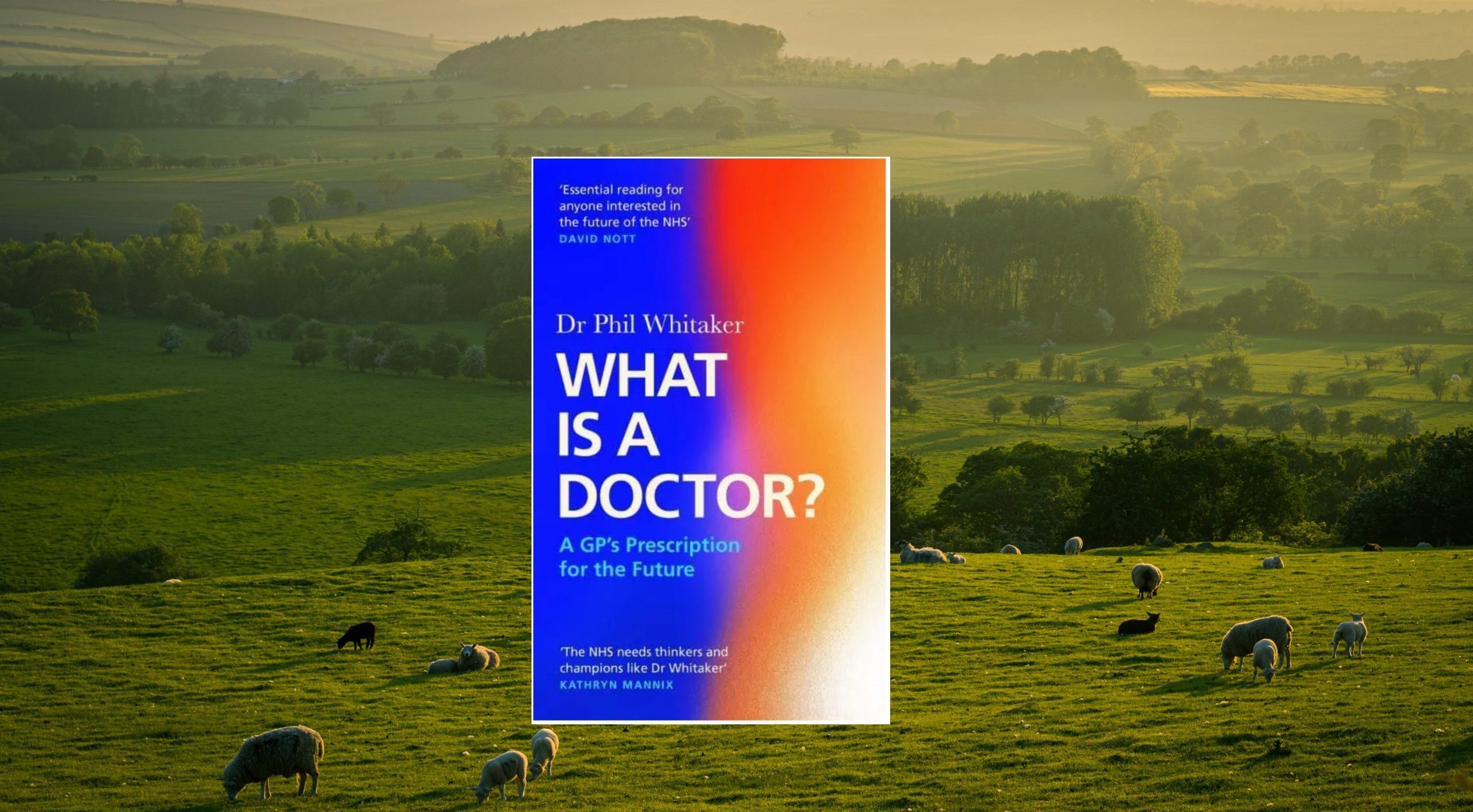Fraser Barratt is a GP trainee in Edinburgh with an interest in integrating compassion and spiritual care into clinical practice. He is on Twitter: @FSBarratt
Scott A Murray MBE is Emeritus Professor of Primary Palliative Care at the University of Edinburgh. After working in rural Kenya for 7 years, Scott returned to Scotland to work as a GP in Edinburgh. He founded and for 20 years led a palliative care research group advocating for palliative care in primary care in low-income countries, as well as in the more economically developed. He is on Twitter: @Scottamurrayed
Around 2000 years ago St Paul taught that love for others was the most important virtue, much greater than knowledge or wealth. Below we have adapted his memorable words to inform and guide busy doctors in the NHS.1
If I speak in the jargon of doctors and surgeons, but have not compassion, I am like a beeping obs machine.
And if I have excellent diagnostic powers, and understand all physiology and pathology; and if I have sharp surgical skills to perform all manner of operations, but do not have compassion, I am nothing. If I give away my salary, and work until I am burnt out, but do not have compassion, my patients and I gain nothing worthwhile.
Compassion means patience; it is kind, not rigid or boastful, arrogant or discourteous. It does not insist on its own agenda; nor does it rejoice in a quick fix, but in sustainable, person-centred solutions. Compassion helps us to listen to all things, believe all things, understand all things, and empathise.
Compassion is unending; as for medical knowledge, it will be superseded, jargon will become defunct, decisions revised. For our knowledge is imperfect, and our diagnoses imperfect. When the next NICE guideline is published, the previous will pass away.
When I was a student, I spoke like a student, thought like a student, reasoned like a student; when I became a doctor, I was given the responsibility of care. For then we saw only in moments, from the corner of the room, whom we now see face to face. Even now I know only in part, what may one day be fully known.
So knowledge, skill and compassion abide, these three; but the greatest of these is compassion.
*****
Compassion changes who we are, how we act, and why we live. It is often easier to say what compassion does, how it contributes to making things change, or indeed to describe what it is like when compassion is missing, than to capture the essence of compassion itself.
The root of the word from Latin, Old French, and Middle English has two parts, ‘com’ meaning ‘with’ or ‘together’, and ‘pati’ meaning ‘suffering’. Compassion is a response to suffering.
Although it is frequently used interchangeably with words such as empathy and sympathy; it has a deeper meaning, and it is related to emotions or states including love, care, and kindness. Compassion is essential for human wellbeing and flourishing.
“Compassion is essential for human wellbeing and flourishing.”
What would our practice be like if compassion was a cornerstone of all health professions? Though compassion, or its synonyms, are used in multiple NHS mission statements, health care is often characterised by a lack of compassion.
The World Health Organization (WHO) sees compassion as essential for quality universal health coverage. Work is underway from the WHO to support the development of compassion within national health systems.2
The benefits of compassion for patient outcomes, physician wellbeing, and hospital systems are well documented.3 Joan Halifax, writing on compassion, points out that, ‘we live in a time when science is validating what humans have known throughout the ages: that compassion is not a luxury; it is a necessity for our well-being, resilience, and survival’.4
Finally, we must remember that compassion requires action and engagement, rather than just a friendly demeanour. In a Lancet article on compassion in sustainable development goals, Grant and colleagues wrote: ‘most importantly, compassion demands action — not the action of “doing to” or “doing for” someone, but action that arises from “being with”— coming together to alleviate suffering and promote flourishing. Compassion leaves no one behind’.5
Bringing compassion to every consultation requires work. So, inspired by the industrious St Paul and his words, let us challenge ourselves to be apostles of compassion, spreading this good news throughout the healthcare system, one patient at a time.
Acknowledgement
The authors are grateful to Liz Grant for advice and discussion regarding this article.
References
1. Bible, the New Testament. 1 Corinthians 13: 1–13. https://www.biblegateway.com/passage/?search=1%20Corinthians%2013&version=NIV (accessed 15 Sep 2023).
2. World Health Organization. WHO Global Learning Laboratory for Quality. https://www.who.int/initiatives/who-global-learning-laboratory-for-quality-uhc (accessed 15 Sep 2023).
3. Trzeciak S, Mazzarelli A. Compassionomics: The Revolutionary Scientific Evidence That Caring Makes a Difference. Pensacola, FL: Studer Group, 2019
4. Halifax J. The precious necessity of compassion. J Pain Symptom Manage 2011; 41(1): 146–153.
5. Grant L, Reid C, Buesseler H, Addiss D. A compassion narrative for the sustainable development goals: conscious and connected action. Lancet 2022; 400(10345): 7-8.
Featured photo by Jacob Hilton on Unsplash.









What a wonderful article. Compassion is something we all need to practice more, doctors as well as ordinary folk.
Agree with Gudov that we need to practise with compassion. This chimes in with the RCGP motto ” Scientia cum Caritas”
Inspiring and a challenge to take on as medical professionals. Compassion should be the motivation to what we do, responding to needs….inner attitude that should always end in action and change. Love this write up, will share it far and wide
Agree with the idea that compassion can add the extra dimension of care that competent technical care misses on its own. I feel strongly enough about this to suggest that competence without compassion is not competence at all. Interested to hear other views on this statement. I love the paraphrase from 1 Corinthians 13, and would preface it with this paraphrase of 1 Corinthians 12 31 (b) “And yet, I will show you the most excellent way”, or “And so, let us give such excellent care that feels, serves and dwells with the sufferer”
Reference: https://www.biblegateway.com/passage/?search=1%20Corinthians%2012&version=NIV (accessed 01 October 2023